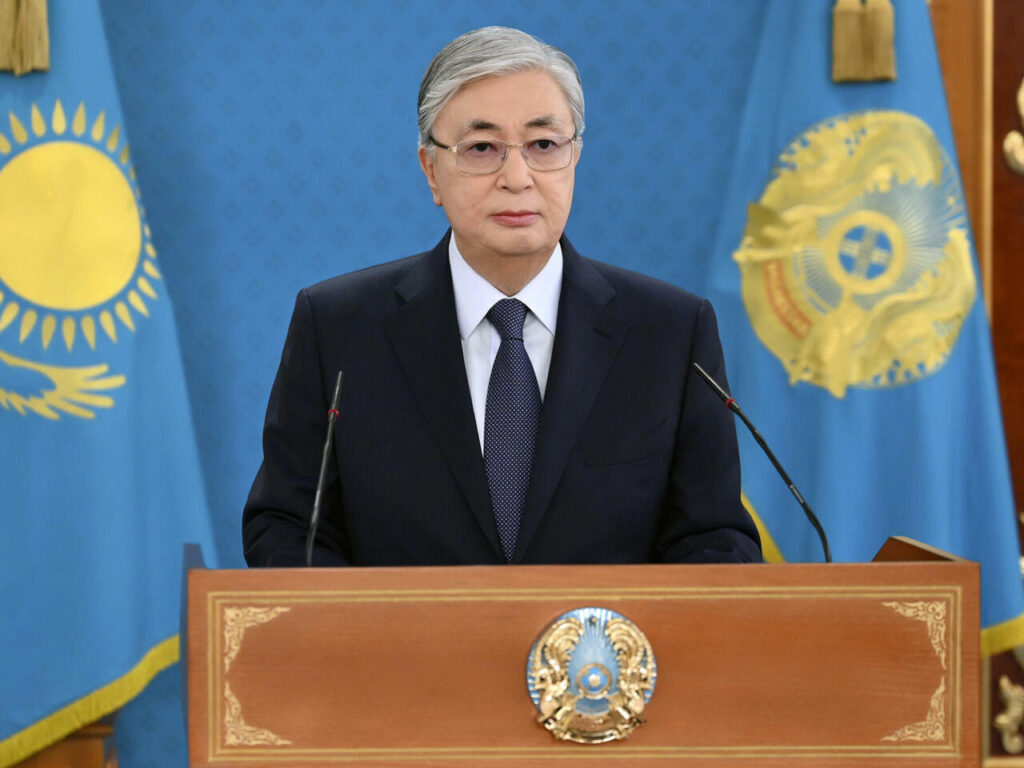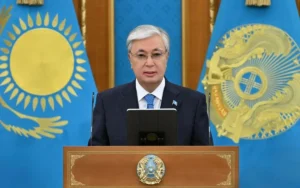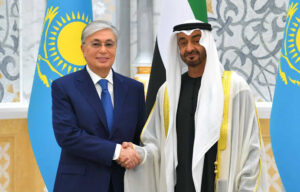Kazakhstan: A Prime Example of a Multivector Foreign Policy

This year alone, Kazakhstan has hosted numerous forums, summits, and high-level delegations, reinforcing its status as a strategic bridge between East and West. A key partner of the European Union, a leading force in the Turkic world, and a rising Central Asian power, Kazakhstan is becoming the most vital pillar of the New Silk Road.
In June, Kazakhstan welcomed the Prime Minister of Slovakia, the President of Bulgaria, and initiated cooperation with Bulgaria in space research, defense industries, and more. Italian Prime Minister Giorgia Meloni also visited the country and participated in the Astana International Forum. The country hosted the Central Asia–Italy Summit and the Second Central Asia–China Summit, which concluded on June 17. On July 29, President Tokayev is in Ankara, where 20 bilateral agreements were signed with Türkiye.
Kazakhstan clearly exemplifies a balanced and pragmatic multivector diplomacy, making it an indispensable partner for regional and global powers alike. For Europe, it is a reliable provider of oil, uranium, critical raw materials, and coal, and its largest trading partner in Central Asia. At the same time, Kazakhstan maintains strong and growing partnerships with China and Türkiye.
Countries such as China, Türkiye, and Russia are increasingly showing strategic interest in Kazakhstan, and the EU must ensure it does not lag behind in the race to deepen ties with the region. During Xi Jinping’s recent visit to Astana, Kazakhstan announced the selected bidders for its first nuclear power plants: Russia’s Rosatom and China National Nuclear Corporation (CNNC). Despite extensive diplomatic efforts, France’s EDF, the only shortlisted European company, was ultimately not awarded a contract.
Kazakhstan continues to strike a delicate and effective diplomatic balance in a world characterized by fragmentation and rivalry. This was again demonstrated by the strategic agreements signed on July 29.
In Ankara, in the presence of Presidents Recep Tayyip Erdoğan and Kassym-Jomart Tokayev, several key documents were signed, including:
- The Decision and Joint Declaration of the 5th High-Level Strategic Cooperation Council between Türkiye and Kazakhstan, signed by both presidents.
- A cooperation agreement between the Turkish Petroleum Corporation (TPAO) and Kazakh national oil company NC KazMunayGas JSC. This is particularly significant as Kazakhstan is a vital player in global oil trade. With this agreement, Kazakh oil exports are expected to expand even further.
Kazakhstan’s geographical and geopolitical role as a bridge between Europe and Asia is a key reason behind President Erdoğan’s initiative to host President Tokayev in Ankara.
Agreements to bolster logistics and transport cooperation include:
- A cooperation and trade development agreement on freight transport.
- A memorandum on international road transport cooperation between the Turkish Ministry of Transport and Infrastructure and the Kazakh Ministry of Transport.
Europe too has strong strategic interests in the region, especially in the development of the Middle Corridor, a multimodal trade route (rail, maritime, and road) that links Asia to Europe via Central Asia, the Caspian Sea, the Caucasus, and Türkiye—bypassing Russia.
Closer cooperation between Türkiye and Kazakhstan is a key step in advancing the Middle Corridor, which stretches from Lianyungang in China to Istanbul, crossing Kazakhstan, the Caspian Sea, Azerbaijan, and Georgia. As noted by Y. Mac-Glandières (2021), Kazakhstan’s Aktau port is expected to play a central role in this modern revival of the ancient Silk Roads.
Finally, Kazakhstan is positioning itself as a regional technology hub. A memorandum of cooperation in artificial intelligence, innovation, and space activities was signed between the Turkish Ministry of Industry and Technology and the Kazakh Ministry of Digital Development, Innovation and Aerospace Industry according to Türkiye’s Directorate of Communications and Aqorda.kz, several other agreements were also signed.
Kazakhstan has solidified its position as a global leader in digital transformation—ranking among the world’s top 25 in e-government development. After two decades of digitalization, it now aims to rival the most advanced nations.
In 2024, digitalization in Kazakhstan reached a new milestone: 92% of public services were delivered electronically, and the IT sector grew rapidly, with over 18,600 tech companies, marking a 16% increase in just three years.
Conclusion:
Kazakhstan is now a central and strategic partner for Europe, the Middle East, China, and Türkiye. As a true champion of multivector diplomacy, it has managed to build ties with various global powers while preserving its autonomy and strategic balance. A recent example is the European Union’s exception granted in the 18th sanctions package—allowing coal transit from Kazakhstan via certain Russian ports, showing Europe’s continued reliance on Kazakh exports.
Kazakhstan is strengthening its ties with Türkiye, China, the Middle East, and Russia, while maintaining its strategic partnership with the European Union. At the heart of this balance lies a clear message:
In a fragmented and competitive world, Kazakhstan remains a key player.
Europe must accelerate efforts to enhance its cooperation with Kazakhstan, especially given the country’s potential to become a major player in the emerging hydrogen market, not only for Central Asia but as a supplier to Europe, as highhighlighted by Euractiv.
SOURCES
Mac-Glandières, Y. (2021). La logistique comme savoir géopolitique? Étude de cas à partir du Middle Corridor. Smart Corridors and Logistics, 33.
Ouest-France. (2025, 29 juillet). Énergie : le Kazakhstan autorisé à livrer du charbon à l’UE via des ports russes sous sanctions. https://www.ouest-france.fr/economie/energie/energie-le-kazakhstan-autorise-a-livrer-du-charbon-a-lue-via-des-ports-russes-sous-sanctions-67cda51c-6c46-11f0-8e39-9e8844dbf1ac
Republic of Türkiye Directorate of Communications. (2025, July 29). Türkiye and Kazakhstan sign 20 agreements. https://www.iletisim.gov.tr/english/haberler/detay/turkiye-and-kazakhstan-sign-20-agreements
Zajmi, X. (2025, 23 july). La Chine et la Russie marquent des points au Kazakhstan, laissant l’Europe sur la touche. Euractiv. https://www.euractiv.fr/section/economy-jobs/news/la-chine-et-la-russie-marquent-des-points-au-kazakhstan-laissant-leurope-sur-la-touche/
Zajmi, X. (2025, 29 avril). Débloquer l’avenir de l’hydrogène au Kazakhstan : l’UE est encouragée à accroître son soutien. Euractiv. https://www.euractiv.fr/section/international/news/debloquer-lavenir-de-lhydrogene-au-kazakhstan-lue-est-encouragee-a-accroitre-son-soutien/


